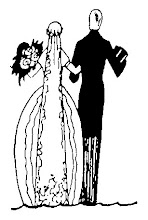Asleep: The Forgotten Epidemic that Remains One of Medicine's Greatest Mysteries by Molly Caldwell Crosby
The last two times Ken and I have had a date night we have literally gone to the bookstore. Yea, how cool is that! One of the perks of living in the city is the larger stores and offerings that a city has. In Charlotte there is an independent bookseller by the name of Joseph Beth, it is an independent bookstore, but I think there are about five of them across the country. One of the perks of this bookstore is that it has a terrific restaurant. Last night I had the turkey and spinach salad with cranberries and feta cheese, and also the summer squash homemade soup. It was wonderful, I couldn't even finish all of the salad. If you are ever over this way you should stop in and see them and eat while you browse, or eat and then browse.
They have quite a few places to sit and read, so after dinner I found a rocking chair beside the fireplace and finished an entire book. Kind of like going to a movie with your spouse, yet your are reading instead! Ken sat next to me and half way finished the book he was reading.
I picked up a book that I literally couldn't put down. Asleep chronicles some of the case studies of a forgotten epidemic that first appeared in the United States in the 1920's. The disease called sleeping sickness or encephalitis lethargica first had been noticed during WWI in Paris and Vienna. People would just go to sleep, for some up to almost 200 days at a time. The reason it fascinated me so, was that my mother, off and on during my growing up years, would say things like, "oh maybe they have sleeping sickness," or " they sleep so much maybe they have the sleeping sickness." To my surprise, when I picked up the book last night at the bookstore, it really was a real disease. I just thought my mother was making it up. She was born in 1923, and somewhere along the way had heard of this epidemic and it must of made an impression on her.
The author chronicles cases in Europe and then in the United States. Tens of thousands died of the disease, but it was over shadowed by the flu pandemic in 1918 which killed somewhere around 20 to 40 million people worldwide. Sleeping sickness did strike worldwide, but did not kill near as many as the flu did, thus it became the forgotten disease. Actually it was forgotten for several reasons; the flu epidemic, they never understood what the pathogen that caused it was, and to this day the reasons for the disease remain a mystery. One third of the people that caught the disease died, the others that lived had strange neurological symptoms that debilitated them. Many of the people languished in asylums for decades before dying of the disease. Very sad. They would wake up and then sometimes as long as two years later would exhibit sometimes bizarre symptoms called parkinsonism. They would loose the use of their limbs, and the saddest thing of all they would lose their minds.
How sheltered we are as a society. We have never had to encounter an epidemic like the 1918 flu or sleeping sickness. I remember my father talking about how my cousin had polio (before I was born) and had to be in an iron lung for many days, don't remember how many. The disease stunted her growth, left her limbs partially paralyzed and she died at about the age of 30+ from it. We have had many modern medical miracles in my life time. It is staggering to think about the progress we have made. I was completely fascinated by this book. Crosby doesn't just bore you with the facts and the progress that epidemiologists have made towards it, but she tells story after story of actual case studies of real people. That is truly what makes the book worth reading.
On a different note:
I could make an analogy of the progressive era here. I know it is pretty far fetched, but here goes. The twenties ushered in the era of the progressives; Utopian thinking, governmental fixes for all that goes wrong, big government everything, etc..... It seems when the progressives were infiltrating the psyches of the people they were literally falling asleep. They have been in a coma for decades and we as a society better wake up before we have given over all of our freedom to a "progressive" government that wants to rule our lives. I am afraid that there will be "neurological" consequences even if we are able wake up and take back the freedoms that we lost while we were in our slumber, allowing them to take our property, free markets, and God given rights.
The book is fascinating and it gave me a piece of a puzzle from my childhood that I wasn't even aware of as reality.



0 comments:
Post a Comment